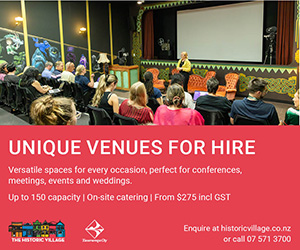In my earlier years working as a journalist, a wily old editor once told me to always write as if I was talking to a good mate at the pub.
Taking this advice literally could have ended badly, especially if my pub language had been particularly colourful or I had a penchant for clichés after a few drinks.
But for me, it was an epiphany, and it got me thinking about the kind of language that resonates with people and how to construct a story that holds people’s attention.
One of the main points he was trying to make was that the most powerful stories are told in plain English.
Most people leave their buzzwords and jargon behind before visiting the pub, and in cases where a shorter word can be substituted for a longer one, the wise storyteller will opt for the simpler option.
Jargon, buzzwords and overly complex language will lose a large portion of your audience before they have read or listened to what you want to tell them.
This is sound advice for business writers as well as journalists.
Jargon, buzzwords and overly complex language will lose a large portion of your audience before they have read or listened to what you want to tell them.
Your point may be a stroke of genius, but if they can’t understand or aren’t engaged, they are very likely to miss it.
The way you construct a story is critical as well, whether you are articulating what your business stands for or trying to sell a product.
In the pub setting, there’s nothing worse than hearing the vagaries of what someone had for breakfast, how the weather was and how many steps it took to get across the street before they get to the main point of their story.
If the point is that earlier in the day you escaped a mugging, don’t bore people with all the lead-up. It’s much more effective to start with the key point – “I just escaped a mugging” – before filling them in on who was after you, when and where it happened, how you escaped and why you think they chose to go after you specifically.
The key is to understand your audience and then tell them what it is they most want to know up front.
You can then fill them in on the background information once you’ve piqued their interest.
In a news sense, the opening sentence of your story is known as your hook, but it’s equally important in business when you want people to take notice and become invested in reading or listening to the rest of what you have to say.
When writing a product description, it’s usually best to start with why the product exists and how it will change people’s lives, rather than leading with technical specifications such as its size, weight and the materials used in its manufacture.
Having a strong hook will also help you write an engaging company profile, and increase your chances of securing grant funding or winning that award you’ve been nominated for.
Strong storytelling can be the difference between success and failure. It pays to get it right, so always consider your audience and make the effort to tell your story in a way that will engage them and be easy to follow and understand.


















